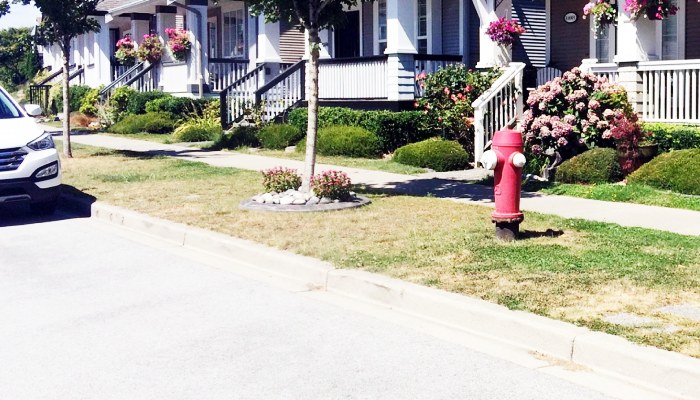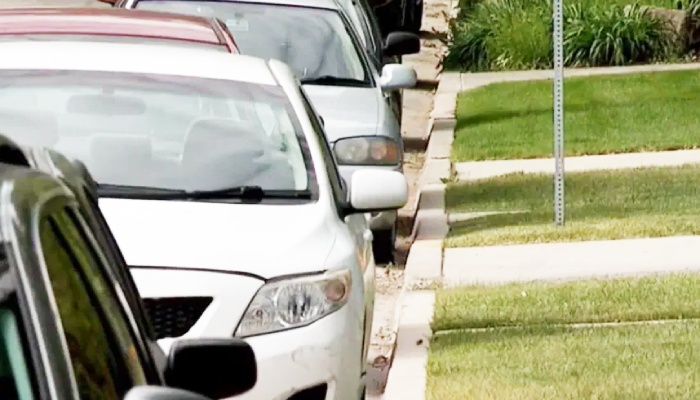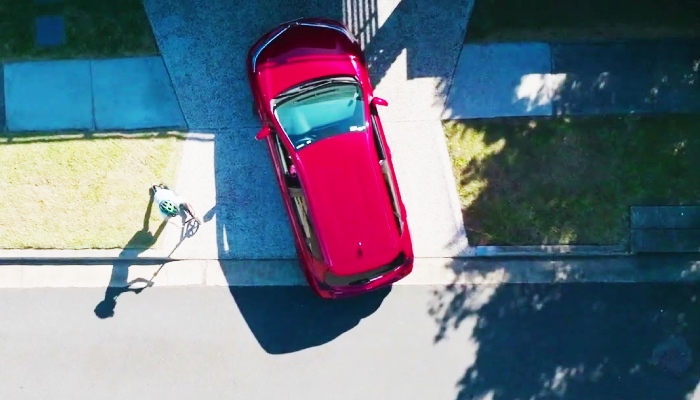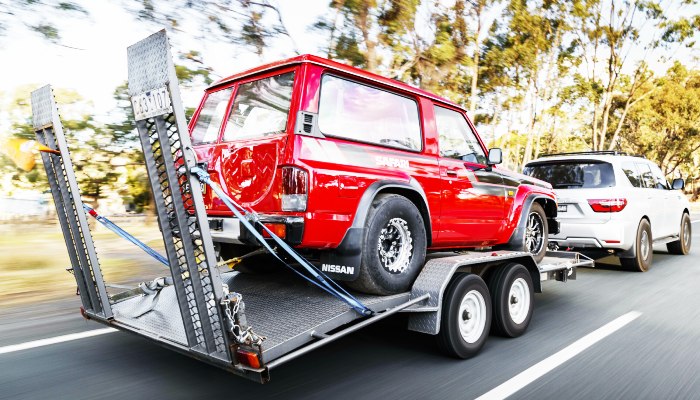
Understanding Queensland’s Parking Rules Near Driveways: Key Insights for Drivers
Understanding parking regulations in Queensland is crucial for all drivers, especially when it comes to parking near driveways. One of the most important yet frequently misunderstood rules involves the legal parking distance from driveways. Many drivers are unaware that failing to maintain the required distance from residential driveways can lead to penalties, fines, or even the towing of their vehicle. Queensland’s parking laws are designed to ensure that residents have unobstructed access to their driveways and that traffic can flow smoothly in residential and urban areas.
By following these regulations, drivers can not only avoid legal trouble but also contribute to a safer and more organized community. In this article, we will explore the specifics of road rules, the legal parking distance from driveways, why it matters, and how drivers can easily comply with these laws. Whether you’re parking on a busy city street or a quiet suburban road, knowing the rules can save you from unnecessary stress and potential fines.

How Close Can You Park to a Driveway?
In Queensland, drivers are required to maintain a safe distance from other parked vehicles when parking near driveways to avoid obstructing access and ensuring visibility for other road users. According to Queensland road rules, vehicles must not park within three metres of a driveway, allowing sufficient space for cars to enter and exit safely. This rule applies whether you’re parking in residential areas, near businesses, or on busy streets with traffic islands.
Parking too close to a driveway can cause significant issues, such as blocking a resident’s access to their property or creating blind spots for drivers pulling out, which can lead to accidents. Councils, including Brisbane City Council, enforce this regulation with penalties that can include fines or, in extreme cases, vehicle towing. This also ensures that waste collection vehicles and other service vehicles can easily access local streets without being obstructed.
By following this simple rule, drivers can help maintain traffic flow, avoid fines, and ensure transport operations run smoothly, creating a safer environment for everyone on local streets.
Why Proper Parking Near Driveways Matters
Parking correctly near driveways is more than just following the law it’s about maintaining safety and convenience for everyone. When vehicles are parked too close to a driveway, they can block the line of sight and clear roadway for both drivers exiting the property and pedestrians on the sidewalk. This creates dangerous blind spots that can lead to accidents, especially in areas with heavy foot traffic or narrow streets.
For residents, improper parking can cause significant frustration. Vehicles blocking driveways may prevent homeowners from entering or exiting their own property, forcing them to find alternative parking or wait until the offending parked vehicle moves. For businesses, blocked driveways can disrupt operations, deliveries, and customer access.
In addition to the safety risks motorists take, poor parking practices can also affect traffic flow. Cars parked too close to driveways often force other vehicles to swerve into the middle of the road or stop abruptly, increasing the risk of collisions. By adhering to the recommended parking distance, drivers help ensure smooth, safe traffic conditions and contribute to a more organized and courteous community.

Common Parking Mistakes to Avoid Near Driveways
Many drivers unintentionally make mistakes when parking near driveways, often due to a lack of awareness of the rules or simple misjudgment. These common parking errors can lead to safety issues, frustration for property owners, and potential fines. Here are some of the most frequent mistakes to avoid:
- Parking Too Close to the Driveway
One of the most common errors is parking within the restricted distance from a driveway, usually within three meters. This can block the view of drivers trying to exit or enter the property and create dangerous blind spots for both pedestrians and vehicles. Always ensure you leave enough space for clear visibility and easy access. - Parking Across Part of the Driveway
Sometimes, drivers park in a way that slightly overlaps the driveway, thinking it won’t cause any harm. However, even partially blocking a driveway can make it difficult or impossible for a vehicle to use it. Whether you’re in a hurry or the space looks tight, avoid leaving your car in any position that encroaches on a driveway. - Misjudging Vehicle Size
Drivers of larger vehicles, such as trucks or SUVs, often misjudge how much space their vehicle takes up. As a result, they may park too close to the driveway, believing they’ve left enough room. It’s important to factor in the full length and width of your vehicle, not just its placement relative to other cars. - Ignoring Markings or Signs
In some areas, there may be specific signage or painted lines that indicate no-parking zones near driveways. Failing to observe these can lead to fines or even having your vehicle towed. Always check for any signs or pavement markings when parking near a driveway, especially in regulated areas. - Parking on a Slope or Hill
In hilly areas, parking improperly near a driveway can pose additional hazards. If a vehicle is not properly secured on a slope, it could roll back into the driveway or roadway, leading to accidents. Make sure to park with your wheels turned toward the curb and use the handbrake to prevent this issue.
By avoiding these common mistakes, drivers can help ensure the safety of parked vehicles and other road users and avoid unnecessary fines or penalties. Taking a moment to check your parking can make a big difference for both you and those around you.
Consequences of Violating Parking Rules Near Driveways
Failing to follow the parking rules near driveways in Queensland can lead to a range of serious consequences, both legal and financial. The penalties for parking too close to a driveway are enforced by local councils and authorities, ensuring that drivers adhere to the laws designed to maintain safety and accessibility for all road users.
- Fines and Penalties
One of the most immediate consequences of parking too close to a driveway is a fine. These fines vary depending on the local council, but they can be substantial. In high-traffic areas or during peak enforcement times, fines for improper parking can add up quickly. Drivers may receive a ticket if their vehicle is found to be within the restricted distance, which can be both inconvenient and costly. - Towing of Your Vehicle
In more severe cases, particularly if the vehicle is causing a significant obstruction, it may be towed. This often happens when a car is blocking access to a driveway, making it impossible for residents or businesses to use their property. Towing fees, combined with the inconvenience of retrieving the vehicle from an impound lot, can make this a particularly expensive mistake. - Safety Risks and Liability
Parking violations near driveways can create safety hazards for pedestrians and other drivers. For example, a car parked too close to a driveway can obstruct the view of those exiting the property, increasing the risk of accidents. If an accident occurs as a result of improper parking, the driver responsible for the violation could be held liable for damages or injuries, leading to potential legal consequences. - Impact on Insurance Premiums
Frequent parking violations, especially those that lead to accidents or claims, can have an impact on your car insurance premiums. Repeated offenses may flag you as a high-risk driver, leading to higher insurance costs over time. - Inconvenience for Others
Beyond the legal and financial repercussions, parking too close to a driveway can create unnecessary inconvenience for others. Blocking someone’s driveway can prevent them from accessing their property, causing frustration and potentially leading to complaints. Being a courteous driver and respecting parking rules helps maintain good relationships in the community.

Tips for Safe and Legal Parking Near Driveways
Parking safely and legally near driveways doesn’t just help you avoid fines – it ensures you’re contributing to the safety and convenience of the community. By following a few simple guidelines, drivers can ensure they are adhering to local parking laws and avoiding common mistakes. Here are some practical tips to help you park properly near driveways:
- Know the Required Distance
Always remember that in Queensland, you must park at least three metres away from a driveway unless signage indicates otherwise. Make a habit of visually estimating this distance, or when in doubt, park farther away to be safe. - Check for Markings and Signage
Before parking, always look for any specific markings on the road or signs that indicate parking restrictions. In some areas, lines may be painted on the road to show no-parking zones near driveways. Paying attention to these visual cues can help prevent accidental violations. - Consider the Size of Your Vehicle
If you’re driving a larger vehicle, such as a van, SUV, or truck, be extra cautious when parking near driveways. Larger vehicles take up more space and can easily encroach on driveways without you noticing. Always leave additional space to account for the size of your vehicle. - Be Mindful of Visibility
Even if you’re legally parked, consider whether your vehicle might obstruct visibility for others. A car parked near a driveway might block the view of pedestrians or oncoming traffic for a driver exiting the property. Always try to park in a way that maintains clear sight lines for everyone on the road. - Use Your Rearview Mirrors and Cameras
When parking near a driveway, make sure to use your mirrors or backup cameras to check your distance and ensure you are within the legal parking zone. Technology like rearview cameras can help you accurately gauge how close you are to the driveway and other vehicles. - Err on the Side of Caution
If you’re unsure whether you’re parked too close to a driveway, it’s better to play it safe. Give yourself more space than you think is necessary to avoid fines or complaints. Parking a bit farther from your destination may take an extra minute, but it’s worth avoiding a penalty.
By keeping these tips in mind, you can avoid common parking mistakes and help ensure the safety and convenience of all road users. Safe, legal parking near driveways not only helps you steer clear of fines but also promotes a safer, more respectful community for everyone.
Summary: Understanding Queensland’s Parking Rules Near Driveways
Parking near driveways in Queensland is governed by specific regulations aimed at ensuring safety, accessibility, and smooth traffic flow. Drivers must maintain a minimum distance of three metres from any driveway, whether residential or commercial. This rule helps prevent obstructions on street parking, allowing clear visibility for both drivers and pedestrians.
Parking too close to a driveway can result in fines, vehicle towing, and even legal liability if accidents occur. Common mistakes include parking within the restricted zone, partially blocking driveways large vehicles, and misjudging vehicle size. Avoiding these errors is crucial for maintaining safety and avoiding unnecessary penalties.
By following key tips such as checking signage, using traffic signs, considering vehicle size, and erring on the side of caution drivers can park legally and safely. Respecting these parking rules helps ensure that residents and businesses can access their properties easily, while contributing to a more organized and courteous community for all road users.
This article is of a general nature and is intended for information only. It should not be relied upon as legal advice. If you require further information, advice or assistance for your specific circumstance, please contact us at Bouchier Khan Lawyers.
